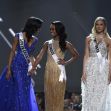A dress code in an Everett, Washington, ordinance said that bikini-clad baristas must cover up their bodies while on duty. But a federal ruling threw a bit of steamed milk on that controversial law recently, saying that the city’s dress code ordinance is unconstitutional. Simultaneously, experts expect numerous other US suits to follow, as states such as Missouri pass strict dress codes in American towns targeting women.
The Everett ordinance was passed in 2017 and targeted owners and operators of “quick service facilities” to only wear clothing that covers both the upper and lower body. The ordinance also stated the city law applied to fast food restaurants, coffee stands, food trucks, coffee shops, and delis, for example.
In Everett, the lawsuit was brought against the city in 2017 by the owner of the Everett bikini barista stand Hillbilly Hotties. Numerous plaintiffs filed the suit, including stand owner Jovanna Edge and multiple employees including Natalie Bjerke, Matteson Hernandez, Leah Humphrey, Amelia Powell and Liberty Ziska.
But the local baristas disagreed and fought back, saying in court papers that the new dress code violates their First Amendment rights, and that dressing the way they want to is an expression of those rights, also comparing their right to wear bikinis akin to their right to free speech.
“Some countries make you wear lots of clothing because of their religious beliefs,” plaintiff Hernandez wrote. “But America is different because you can wear what you want to wear. I wear what I’m comfortable with and others can wear what they are comfortable with. Wearing a bikini sends this message to others.”
The U.S. District Court in Seattle, in its ruling, said the city’s law was one of gender discrimination. The court ruled that the workwear ordinance also violated the Equal Protection laws of the US and Washington state constitutions.
In a 19-page ruling, signed by U.S. District Judge Ricardo S. Martinez, gender discrimination was noted as a feature of the city of Everett’s ordinance.
The U.S. District Court in Seattle published the ruling last week, finding Everett’s dress code ordinance violated the Equal Protection clauses of the U.S. and Washington state constitutions. The Court found that the ordinance was, at least in part, shaped by a gender-based discriminatory purpose.
The ruling states, in part, that “It is difficult to imagine, the court wrote, how the ordinance would be equally applied to men and women in practice because it prohibits clothing “typically worn by women rather than men,” including midriff and scoop-back shirts, as well as bikinis.”
Baristas that were working in bikinis in town, the ruling states, were targeted by the ordinance, and their industry is almost all comprised of women. In the ruling, it’s clear that the justices believe the local female baristas were singled out by the former ordinance banning bikinis in the workplace.
“Assuming the owners of bikini barista stands are unable or unwilling to enforce this dress code, at some point law enforcement will be asked to measure exposure of skin by some method,” says the ruling.“This ‘encourage(s) a humiliating, intrusive, and demoralizing search on women, disempowering them and stripping them of their freedom.”
The plaintiffs also made a complaint against the city’s new “lewd conduct ordinance” because by local law it is illegal to expose “more than one-half of the part of the female breast located below the top of the areola,” “the genitals, anus, bottom one-half of the anal cleft or any portion of the areola or nipple of the female breast.” However, this court decision only ruled in favor of the portion of the complaint regarding the dress code ordinance.
Meanwhile, another state decided to impose restrictions specifically on women. The Missouri legislature enacted a dress code that orders female members of the legislature to show less of their body and less skin at work. Numerous female elected officials were furious. Democratic State Rep. Ashley Aune said, “You know what it feels like to have a bunch of men in this room looking at your top trying to decide whether it’s appropriate or not?”






